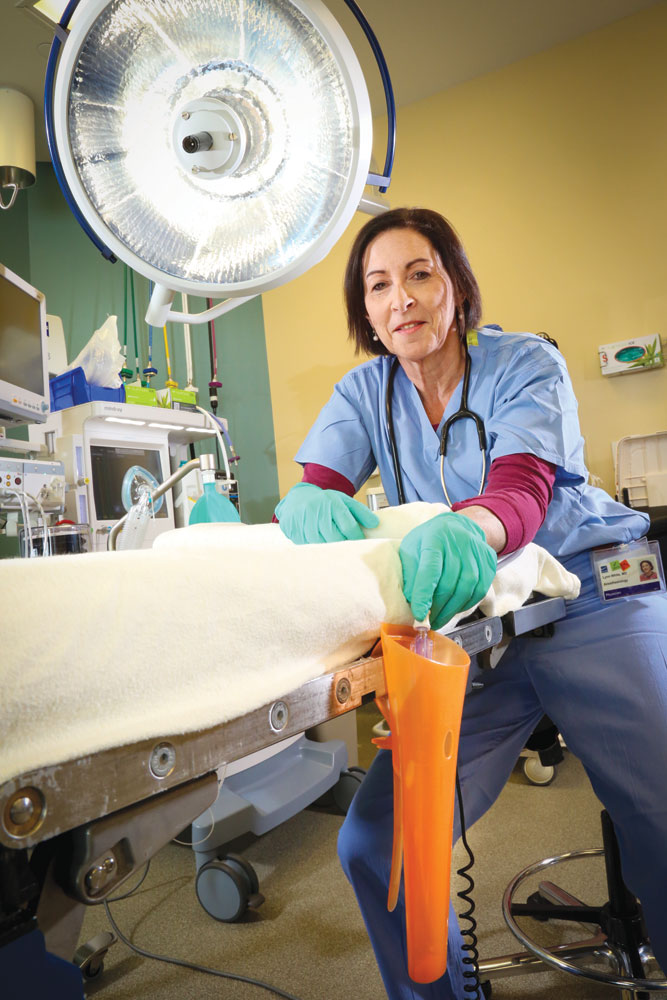
Lynn White, anesthesiologist and Lowry resident, places an oral suction tube into her invention, the SuctionShield. The device protects the tube from touching anything in the operating room, preventing the spread of bacteria.
A simple invention for the operating room could potentially cut down the number of cases of healthcare-associated infections (HAIs). Lowry resident Lynn White, an anesthesiologist at the Clear Creek Surgery Center in Wheat Ridge, invented the SuctionShield, a disposable holster that attaches to the bedside during surgery and holds the oral suction tube when it is not being used.
Once an oral suction tube has been put into a patient’s mouth, it is covered in organisms. The tube typically is put in between the bed sheets, under the pillow, or hung across the ventilator or bedrail, all ways for potential cross-contamination. “I felt like we were contaminating from one patient to another to another all day long and so I thought we needed to have a safe storage,” White says.
About 700,000 patients develop HAIs every year in the U.S. Many private insurance companies cover HAIs, but Medicare and Medicaid do not.
Staph organisms and enteric bacteria from the gut are resistant to antibiotics and difficult to fight, as well as opportunistic in the body. These bacteria can cause pneumonia or bloodstream infections. People succumb to these infections when the immune system is compromised, which is common during a hospital visit. “We are all responsible for surveillance and protecting patients from the environment. I aim for zero tolerance of HAIs,” White says.
The SuctionShield holds the oral suction tube when it is not being used during surgery. The device has a “reservoir grid” that allows the tip to air dry and drip into a reservoir at the bottom, rather than staying moist and promoting bacterial growth. The SuctionShield also pinches the end of the tube to minimize noise and be more pleasant for patients. The device is used in hospitals and clinics around Denver, including University Hospital.
This is the first of White’s many ideas to improve health care. She says many nurses and doctors may see things that can improve but don’t have the time or funds to invent a better product. She, however, has a list of inventions and is fully committed to making them a reality. “Most things that are common sense don’t exist in the medical world because it’s very time-consuming to invent. There is no template for how to do it and it’s very expensive.”




0 Comments